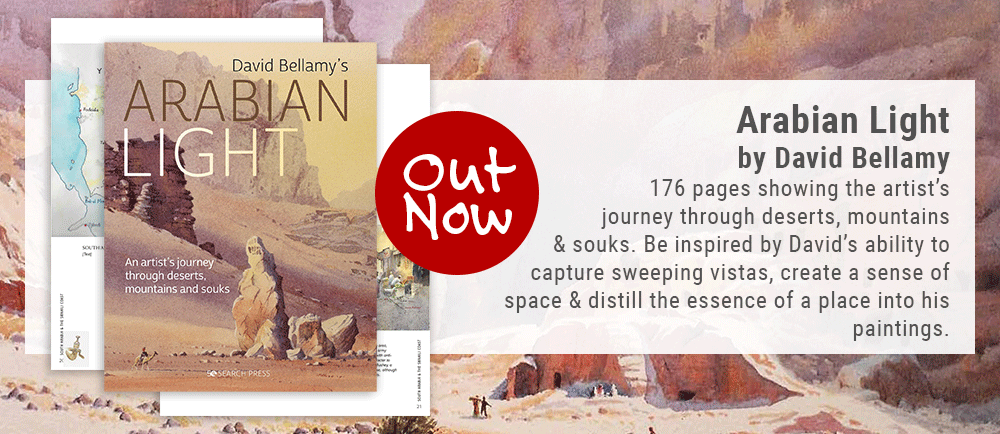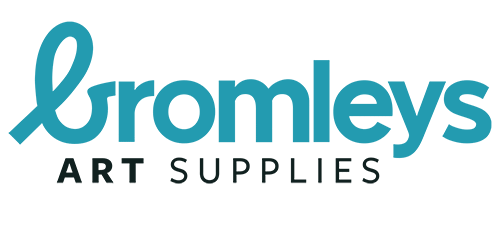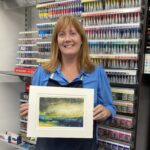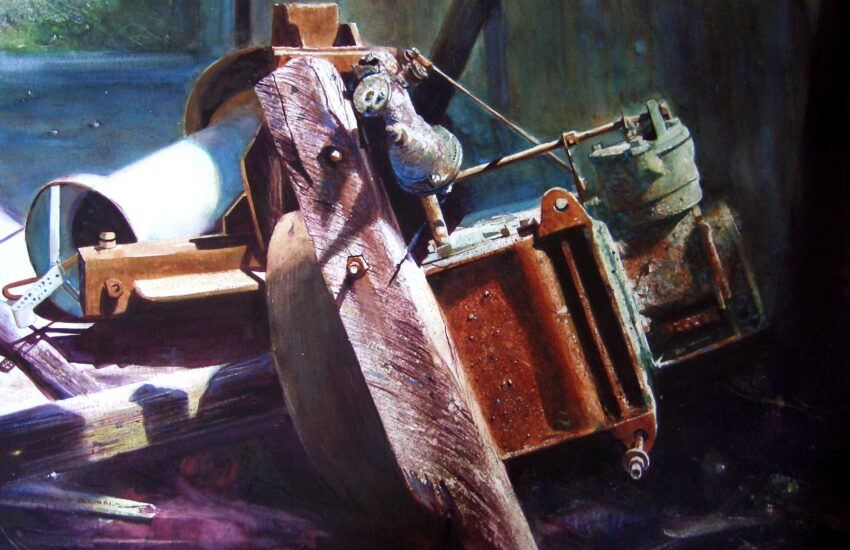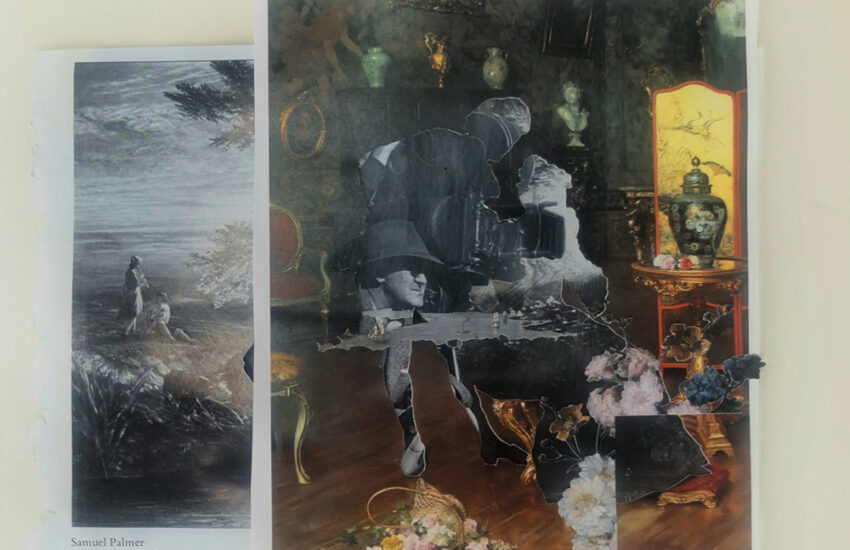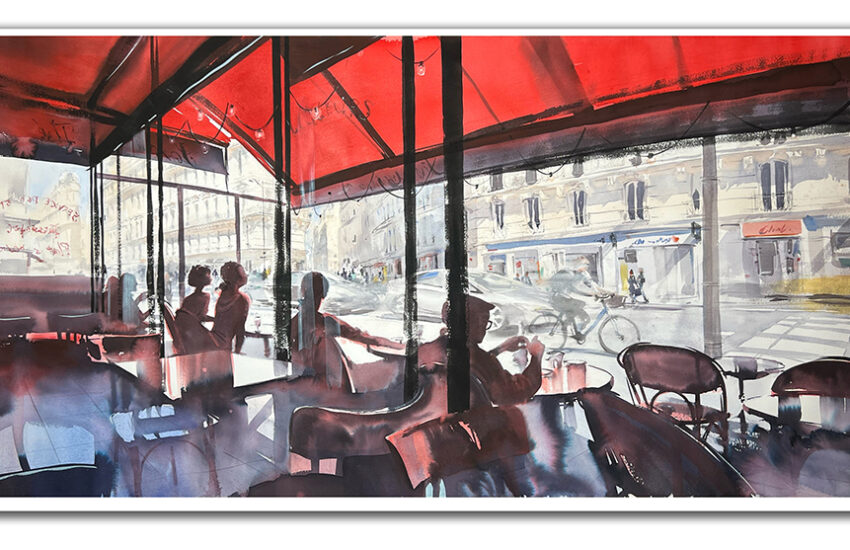An Interview With Watercolour Artist David Bellamy
We caught up with internationally renowned professional watercolourist David Bellamy to find out more about his artistic methods and influences and the publication of his new book, Arabian Light.
Tell us about which artists influenced your work and how you started out as an artist.
As a youngster I had always been interested in art so when I began climbing mountains and seeing dramatic scenes, often wreathed in exciting atmospheric effects, I simply had to capture them on paper. Watercolour was the obvious medium for rapid and easily transportable work but it’s not the easiest of mediums. Early influences were Turner and John Sell Cotman.
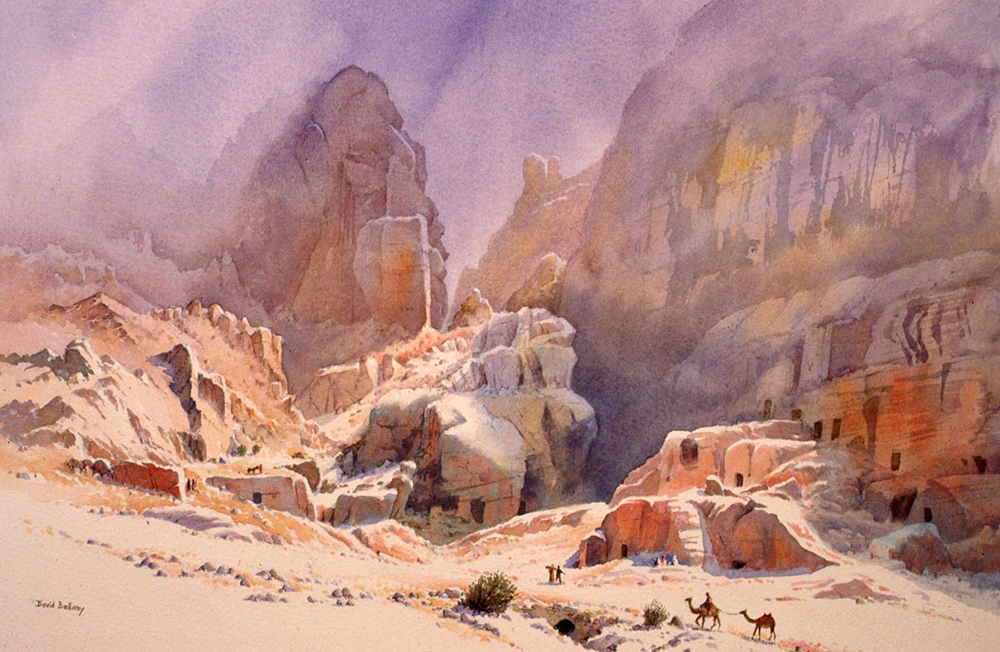
Do you have any formal training or are you self-taught?
I had no formal art training apart from evening classes in life drawing in Hampstead. There were no videos in those days but the few art books did help enormously. There was nobody around to tell me how to paint mountain crags in a storm, with wind and rain lashing the paper. Nature did its best for the effects of light rain on a dark watercolour wash. The manner that mud added to a composition when the sketch accidentally fell into a puddle did sometimes enhance my appalling efforts! I developed a technique using dark watercolour pencils to draw into wet washes and rain-soaked paper to create moody images, even though much of the colour might be washed off!
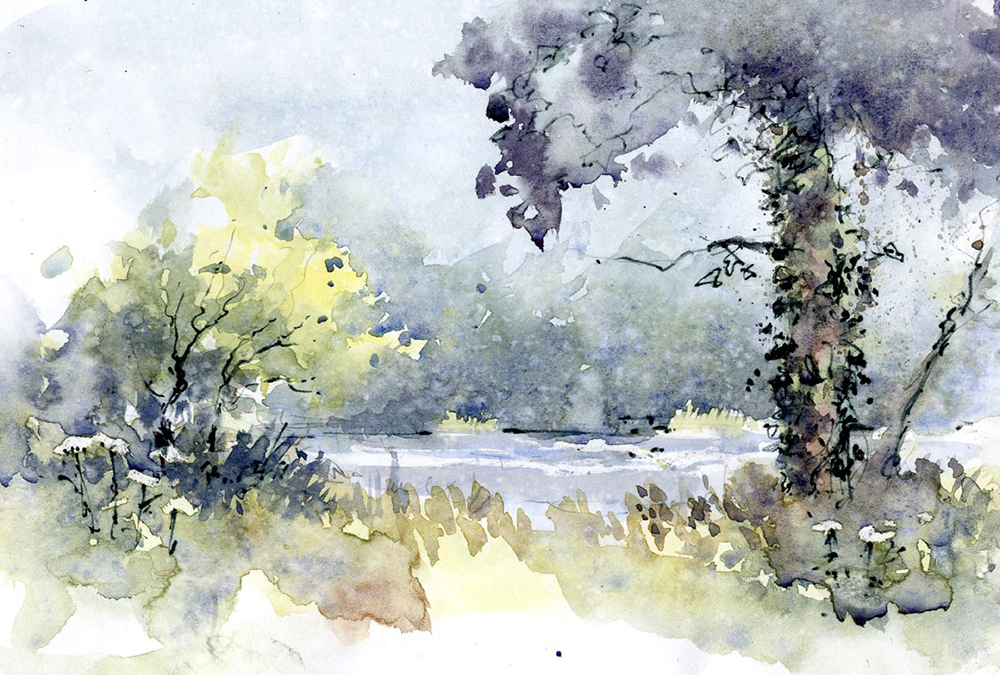
What is a day in the life of a professional artist like?
No two days are the same. At home I normally work in the studio during the morning when I am most alert and respond best with my painting. The afternoons are generally spent writing and on emails which take up so much of the time, and prevent me from exploiting so many of the creative ideas I so wish to work on. I try to get out into nature during the day if possible.
What drives you to create a piece of art?
Naturally, there are times when I have to do paintings I’m not too excited about and need to paint when I don’t feel like it. However, at its best the inspirational muse when I witness a dramatic scene can fire me to much greater efforts. It always pays to have a strong affinity with your subjects.
How do you begin your painting? Do you have a set method or does your technique vary from painting to painting?
Usually I work from my sketches done on location, and these provide a composition that has already been worked out. If I work from a photograph I prefer to start with a studio sketch before working on the finished painting. I lay on as little pencil drawing as will suffice.
Which painting of yours are you most proud of, or consider a particular favourite?
Mountainous Icebergs, Illulissat is a particular favourite as it embodies all the drama of an Arctic ice-scape. I sketched the scene from a boat. The towering icebergs seeming to hover in the sky, with a natural ice arch framing a fishing boat.
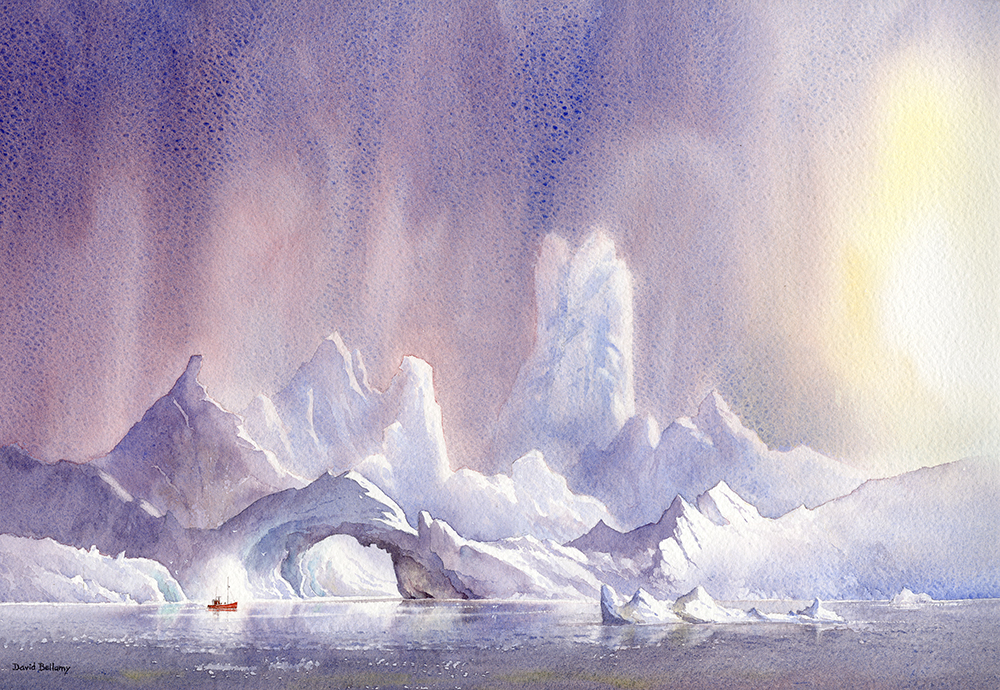
Your new book, Arabian Light, is your twenty-first book! What is it all about?
Arabian Light covers my many adventures sketching, hiking and exploring in the Middle East. A colourful and exciting place where engaging with the local people is both rewarding and entertaining. The mountains and canyons of Oman took my breath away with sensational cliffs, moody twilight scenes and romantic castles; the effervescent humour of the Egyptians shone through everywhere, especially in the souks and streets of Islamic Cairo; an expedition deep into the heart of the Sahara brought outstanding new desert compositions; the ruins of Petra in Jordan blew my mind away, and sketching in Hezbollah country in Lebanon was not without its comical moments. The book is crammed with watercolours and sketches of landscapes, people, city scenes, and so much more, and will hopefully inspire artists, although it is not a practical art book.
You’ve travelled extensively, do you have a favourite place that you have painted?
I’ve enjoyed sketching in the high Arctic, the Himalayas, the Alps, the Middle East, the Pembrokeshire coast, the wild places of Africa and South America, but one place that has had a profound effect on me is the Dolomites of Italy. Observing strong sunlight flooding across the amazing colours of Dolomitic limestone transformed my painting of mountain scenery.
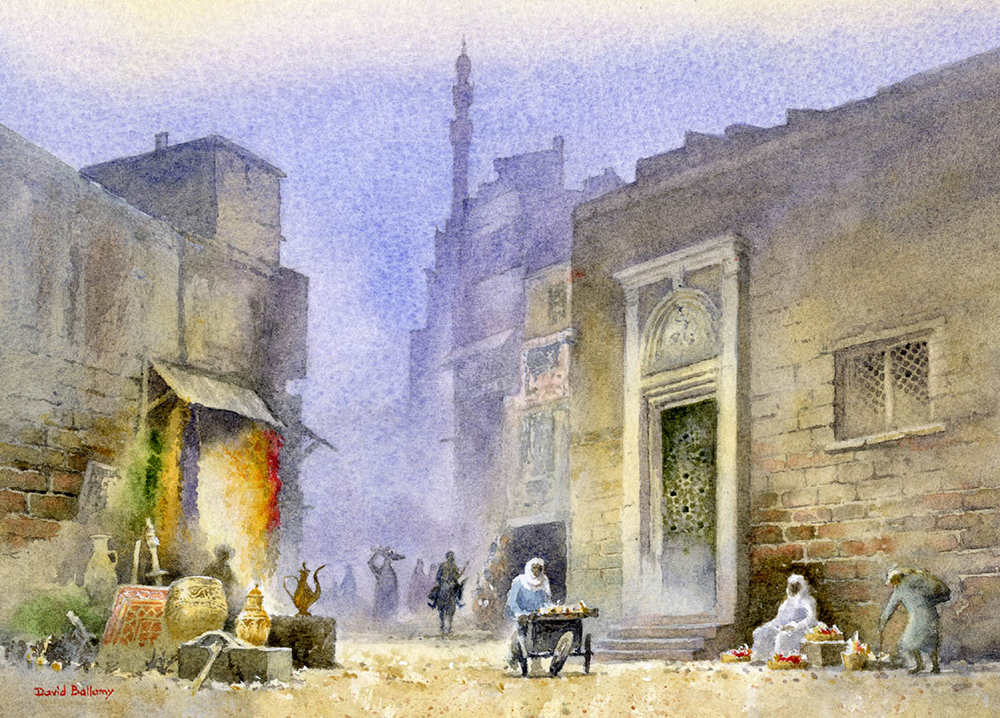
Is there a location or landscape you would love to have the opportunity to paint?
The jungles of Borneo are a place I would love to visit. Observing not only the landscapes but wildlife as well, particularly the orang-utangs.
What advice would you give to an aspiring artist?
It’s vital to concentrate on the type of subject material that you have an affinity with, and persevere – don’t give up if things don’t work the first time. It takes time to become adept at painting, especially in watercolour.
Finally, if you were stranded on a desert island, what would be your top five essential art materials?
I would need a block of Saunders Waterford watercolour paper, a box of Daniel Smith extra fine watercolours, a set of sable brushes, some 4B pencils and a drawing board. Empty coconut shells would no doubt work for water pots and small palettes.
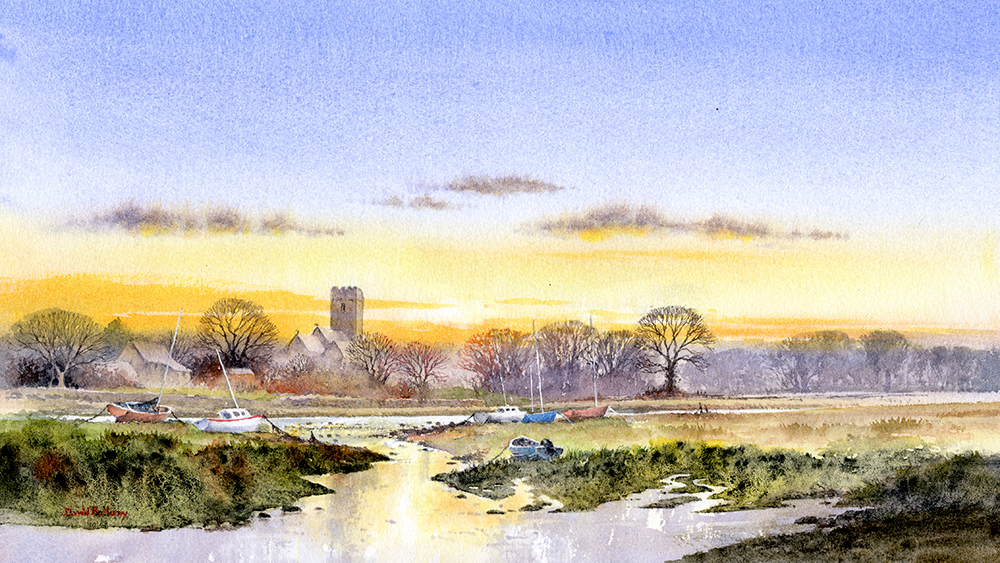
To see more of David’s work visit his website: https://www.davidbellamy.co.uk
David will be demonstrating watercolour painting at the Patchings Art Festival on 14-16th July 2022.
David’s next exhibition is at the Osborne Studio Gallery, 2 Motcomb Street, London SW1X 8JU to launch the Arabian Light book from 18th to 27th May. He will be showing most of the book illustrations.
Buy David’s new book on our website
